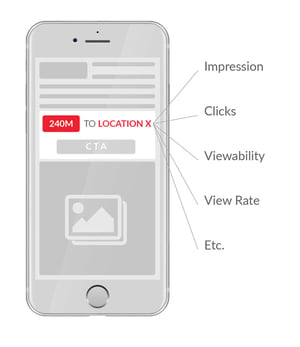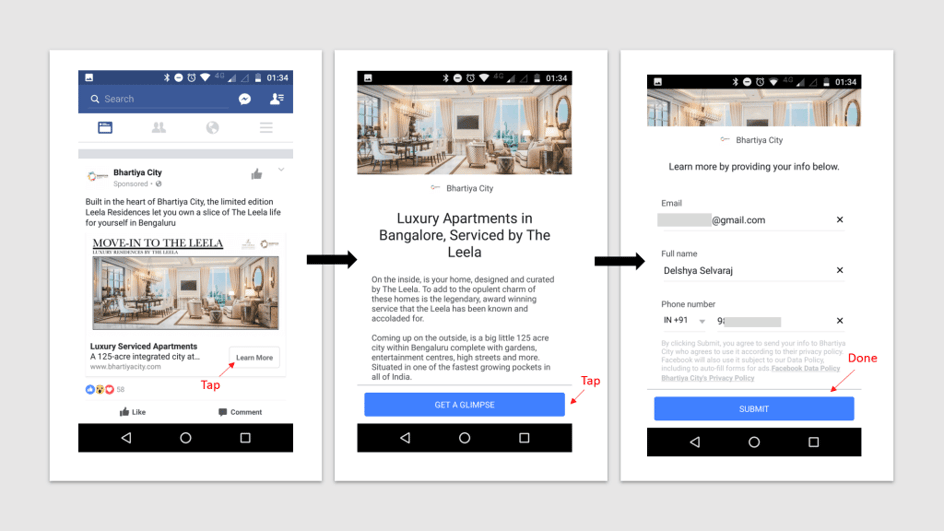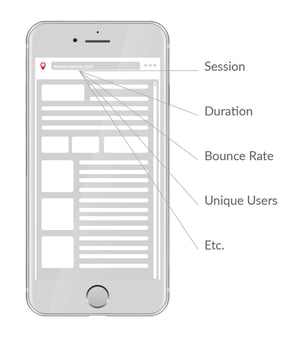FUN ADVERTISING 102: Where did my clicks go?

Any person who has run a campaign on Facebook or Google (or any other digital means) would often be puzzled by the difference between the click numbers on these platforms and the sessions / pageviews tracked by Analytics solutions (Google Analytics, Adobe Analytics, etc.)
After all, it makes sense that people would only click if they are interested in checking out the landing page and the sessions should register whenever a user visits the page from a click. (Source: Google)
Well, it is not as straightforward as many would expect. And there are several reasons why. But first, let us examine closely the numbers reported by the ad platforms and the page trackers because they are inherently different.
BANNER ANALYTICS TELL YOU WHAT HAPPENS ON THE BANNER SIDE.

Ad Platforms serve the ads to the end mobile users while they are consuming content / media. Think of them as Uber/Grab, they matchmake the publishers (the actual owners of websites/apps where the Ads appear on) and people who want to display their ads to the audience of the publishers.
In the case of Facebook and Google, they own the media themselves so while the same process still applies, they will collect the media spend to their own systems.
As such, these ad platforms will most likely want to count as many impressions and clicks as possible. Certainly, credible ad platforms will put in place checks and balances to prevent frauds and ensure brand safety for the advertisers. Still, there is a pretty much in place an incentive for a higher count.
That explains why, sophisticated advertisers with mammoth ad budgets will have multiple impression, click, and viewability trackers for their campaigns. Of course, the cost for these tracking services are also high but they at least provide the advertisers with a peace of mind.

PAGE ANALYTICS TELL YOU WHAT HAPPENS ON THE LANDING PAGE.

On the other extreme, Page Analytics services try to give you as accurate a picture for your visitors as possible, they have in place measures to discount invalid visits, namely, incomplete page loads, accidental visits (from accidental clicks), duplicated sessions, etc. For even well-known services, as long as the visitors do not accept cookies (which is important for Page Analytics to function), the session is then discounted even though the page has been fully loaded on the phone.
Sometimes, the Landing Page itself is a problem too.
Sometimes, the advertisers get caught up in trying to include as many elements on the page. At times, we also encounter those who use multiple Page Analytics trackers (just to make sure!). While this is all good in theory, it is not the wisest strategy to execute a digital campaign, not on mobile.
Especially for mobile users, who are constantly on the move with unpredictable signal strength, it is always the best strategy to make the page as easy to load as possible.
So how? Here are the best practices:
There are certainly many more good practices for the advertisers to minimize the difference so as to get a more accurate reading for their analytics. But the top ones are:
Make sure that the Landing Page is mobile-optimized.
Also try to run through a speed test to load your page in the country of the campaign. A landing page on mobile should not take more than 2 seconds to fully load.
Make sure that you are using credible traffic providers
Or at least discuss how much discrepancy would be acceptable for both you and the providers. Assist them to monitor the daily results by sharing the Page Analytics reports.
Make sure you are using a credible Page Analytics provider.
Yes, this is intentionally singular. You should only pick one provider you trust most. And try to understand how their metrics are reported and where they would fail to report.
It is best to use traffic and page analytics from the same provider.
Without further mentioning, link your Google Ads to Google Analytics if you are using Google. Avoid cross-comparing. Google might not have a lot to comment if Facebook Analytics does not report similar to what Google does. You will be wasting your time trying to find a concrete answer.
If multiple delivery and tracking systems are deployed, find the best agency to help you execute your campaign while reporting various metrics to you in the best way possible .
YOOSE is known to have been quite helpful in this regard for our global clients.
CONCLUSION
The digital landscape is certainly not as easy to navigate. You have multiple systems offering the promise of awareness, conversions, sales etc. But each has their own way of counting things. Ask your advertising partners today if they are aware of the discrepancies from various reporting systems and what their strategies are to minimize them. Finding a reliable partner to work with is simply not easy but certainly an important investment for you to save valuable time
Contact us to know more
Fill the information and we will get back to you soon!
